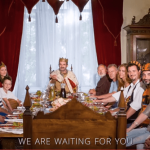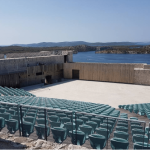Split and Dubrovnik take most of the tourism headlines on the Dalmatian mainland coast, but as TCN’s visit to northern Dalmatia on August 30, 2017 shows, there is a new rising star which truly has it all – Sibenik.
I will confess that my knowledge of northern Dalmatia is not what it should be, and I suspect I am not alone. With major coastal destinations such as Split, Dubrovnik and Istria, coupled with those irresistible islands, other quality coastal attractions get a lot less attention. Since the arrival of Ryanair in 2007, the profile of Zadar has been raised considerably, and the European Best Destinations vote to name it the best destination in Europe raised that profile further, and Zadar is rightly becoming one of the must-see towns on the coast. And yet, in between Split and Zadar, there is an arguably even more attractive jewel, which is quietly going about its business in a calm and innovative way, and which has the potential to become as desirable a destination as Split or Dubrovnik (yes, seriously):
Sibenik.
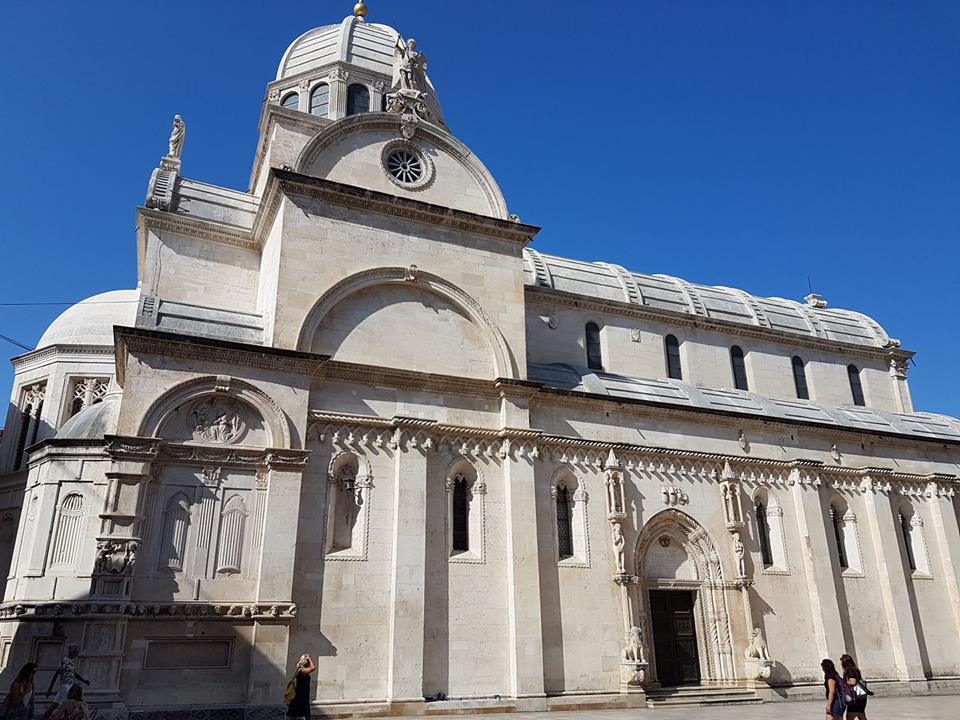
I had been to the city three times before, all short visits and all focused on the task in hand. It was exhilarating to fly in by seaplane a couple of years ago, as ECA landed with a demonstration flight, which really showed the beauty of the region from the air; I felt a little posh arriving on the Nikola Tesla EV Rally and overnighting in the excellent D-Marin resort (Brad Pitt came to stay after I had checked out); and I did some filming in the centre for Legends of Croatia. All wonderful experiences, but all without any free time to explore the city.
That changed a couple of days ago, as a meeting in City Hall brought us into Sibenik on the way home from Hvar to Varazdin. The girls went off to explore as I went to the meeting, and they reported a divine experience – they had the whole square to themselves in front of UNESCO World Heritage Site St James’ Cathedral, which is made entirely of stone. I came later and there were a handful of tourists, but the solitude must have been magical. Not many places in Croatia can boast of a UNESCO World Heritage in the neighbourhood, and only one place can boast of two – you guessed it, Sibenik, after the marvellous triangular St. Nicholas Fortress was awarded the status earlier this year.
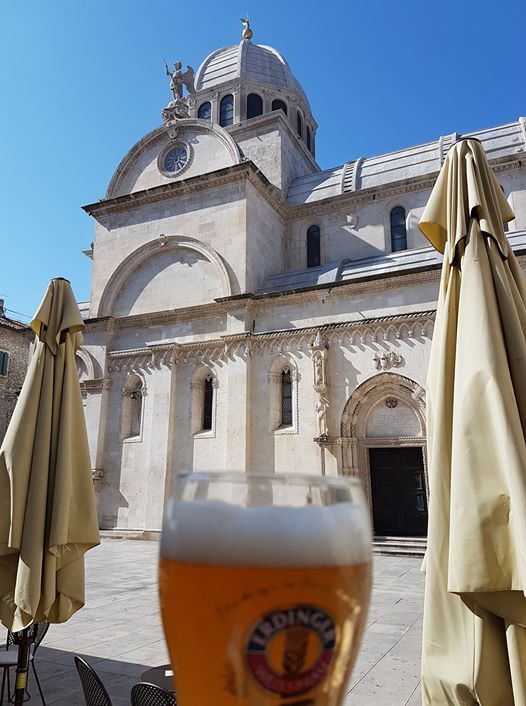
An idyllic spot for early morning refreshment, and a chance to marvel at surely one of the finest examples of stonemasonry in the world.
The Cathedral of St. James – Šibenik, Croatia from Romulic & Stojcic on Vimeo.
And, although I did not have that wondrous experience of the cathedral square to myself, the Osijek Maestros aka Romulic and Stojcic, have done a magnificent job (again) in bringing out the very best of Croatia in this video above.
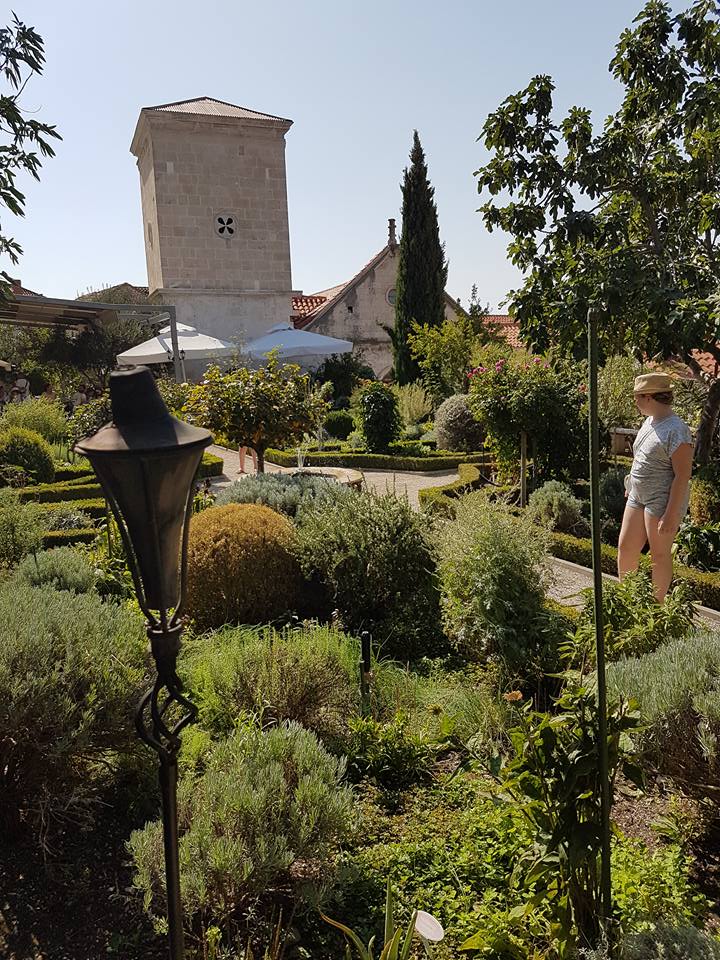
The lady I met at City Hall strongly encouraged me to visit one of the fortresses above the city, St. Michael, but in such a charming way that I was left with the impression that I would be the one truly missing out if I did not do as she suggested. I joined my family, wondering how to sell the prospect of climbing several hundred steps to look at an old building, and was emboldened to suggest it when I saw how enchanted they were with Sibenik Old Town at sea level. My two daughters are real troopers, but the fortress did look far away up the hill, but we decided to take it slowly. I decided not to explain that we could have driven close to the fortress, as the nice lady from City Hall suggested we would have a much better experience through the warren of stone streets if we climbed the steps.
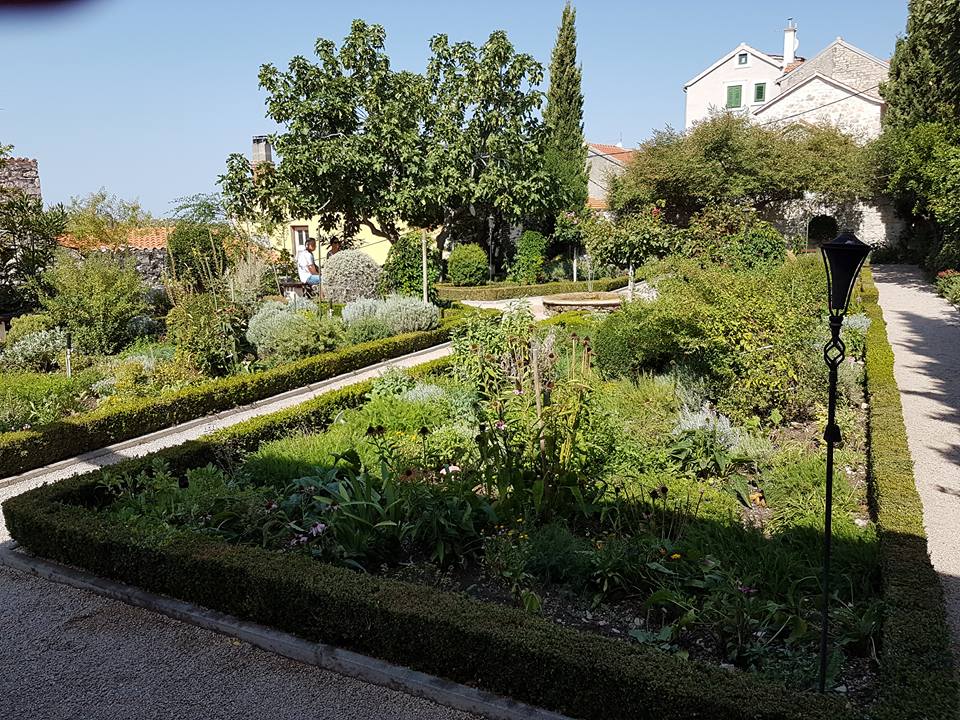
And so it proved. This fabulous Mediterrean garden, supremely tended and existing in a sea of stone, was just one of the many points of interest on the way to the fortress.
Two pairs of wide eyes at the stone beauty gave a little extra strength to two pairs of young legs, and in just a few minutes, we had made it to St. Michael’s Fortress.
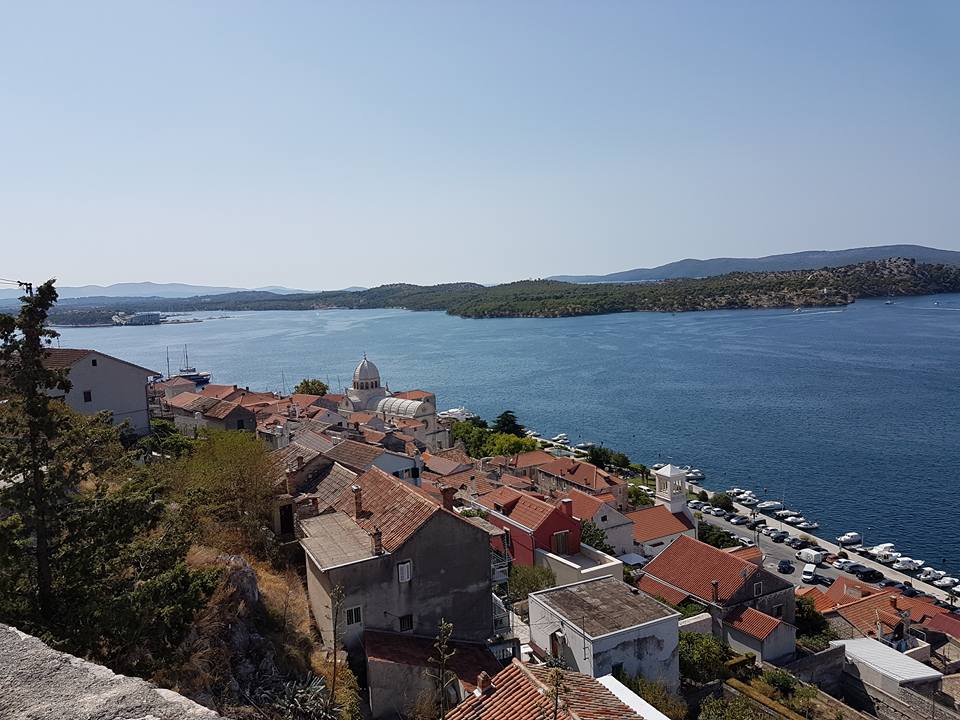
To be rewarded by this.
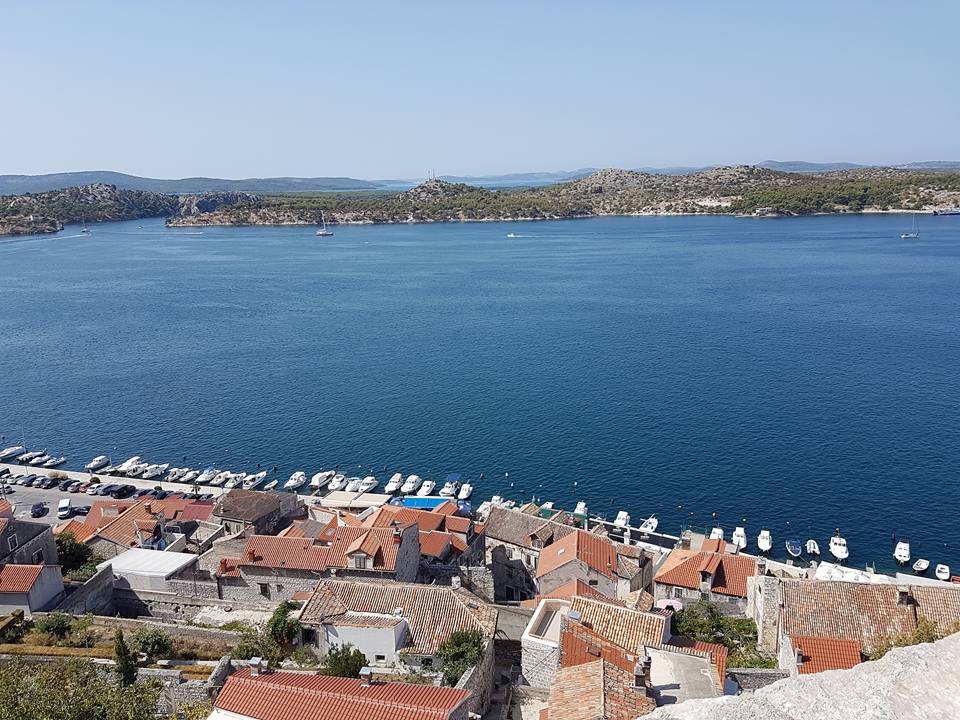
And this.
And then the surprises began.
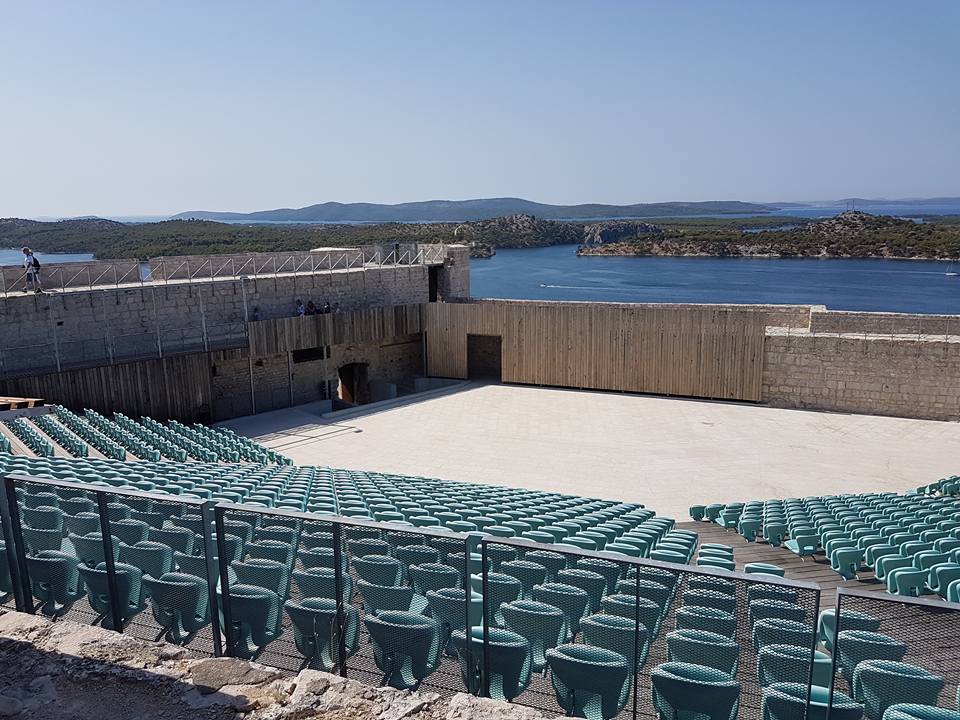
St. Michael’s Fortress Revitalization Project, financed by the EU pre-accession programme IPACIIIC – BRI, was finalised in 2014. It includes the renovation of the fortress and the construction of a summer stage with 1077 seats. This makes the fortress a recognizable monument of the cultural heritage. It is accessible to the visitors and it promotes cultural tourism by organizing different cultural, musical and stage events.
See the opening in 2014 above. And just three years later, the fortress has registered more than 500,000 visitors, as recently reported on TCN.
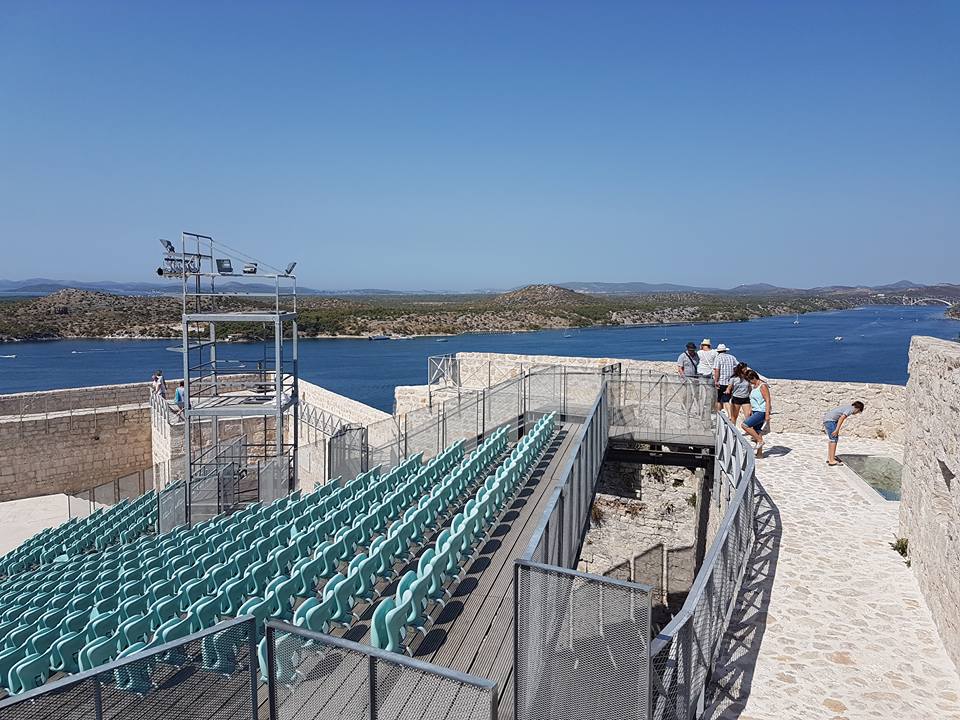
Surely one of the premier concert venues in all Europe.
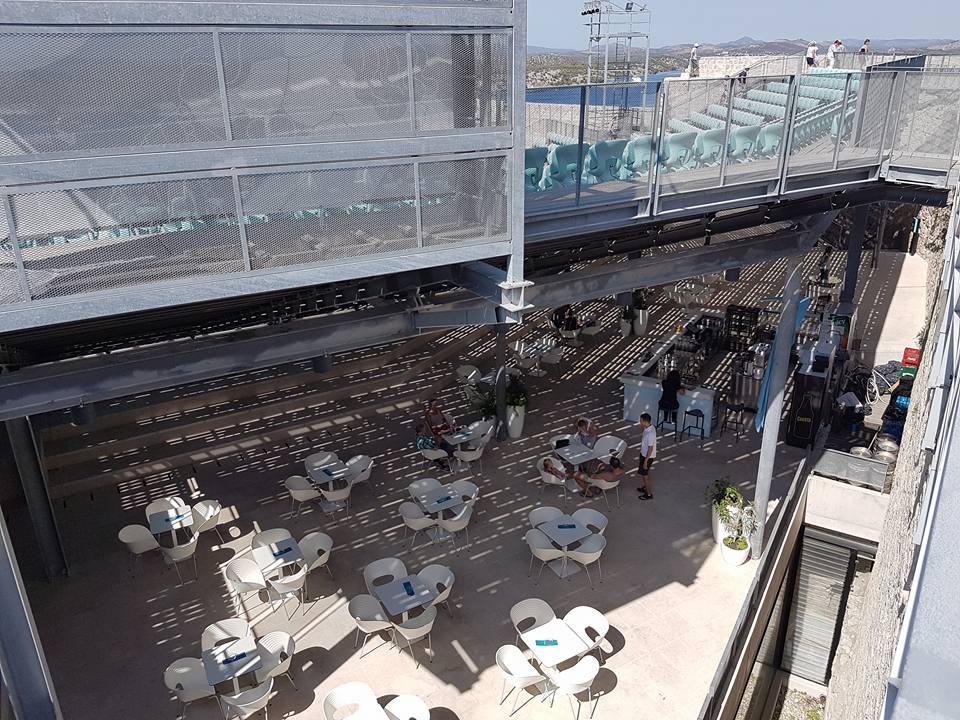
I really liked the use of space as we wandered around. A sheltered, spacious cafe under the stage.
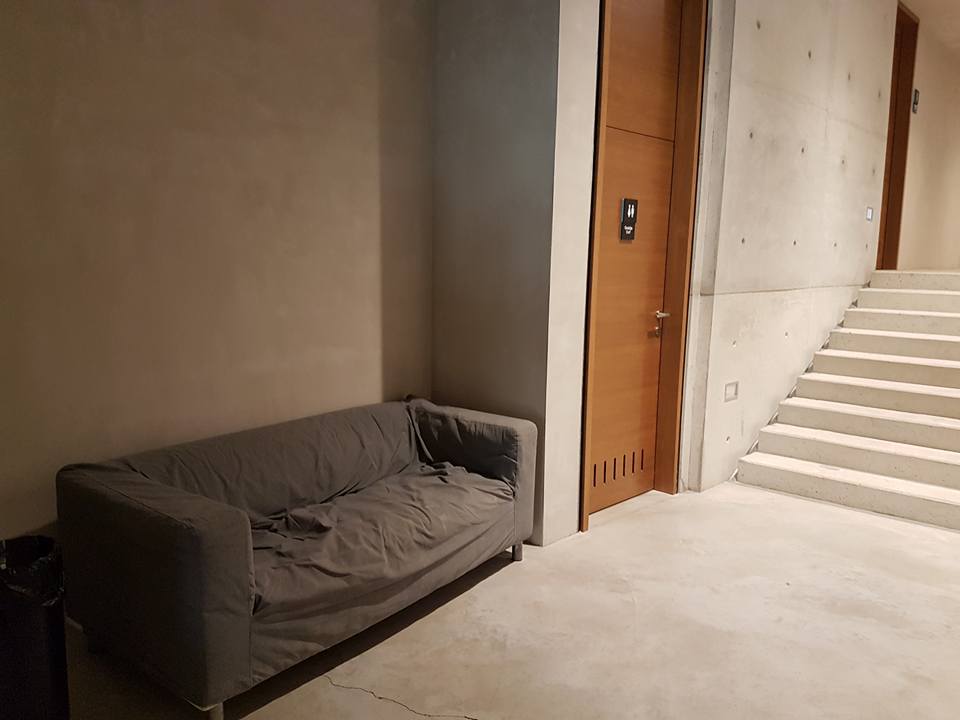
And a slightly more modern interior, complete with comfortable sofas – toilets and changing rooms for the performers.
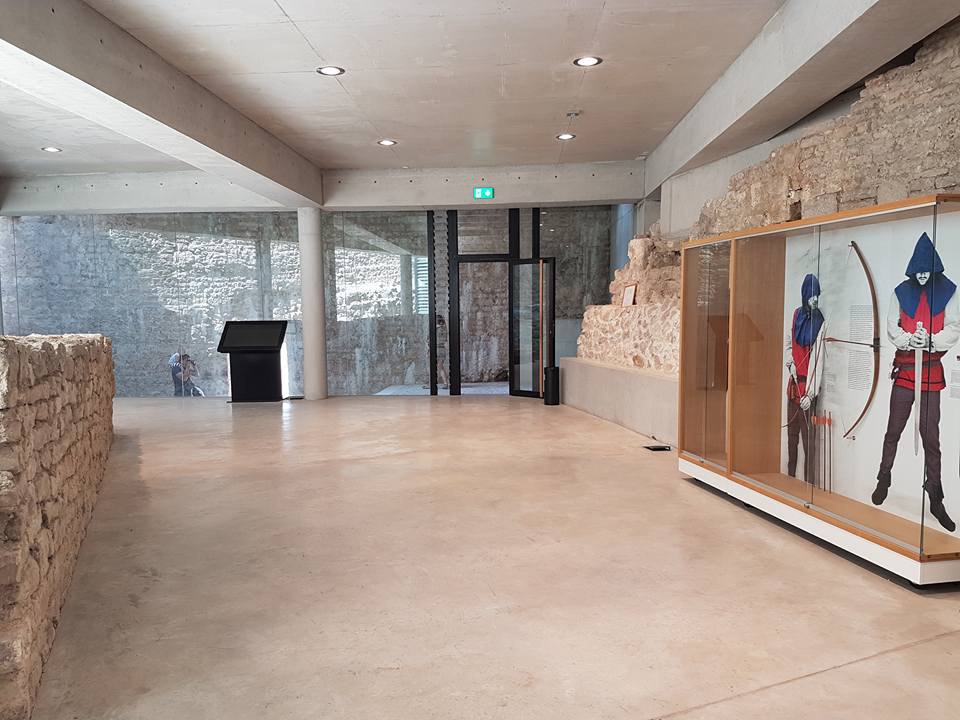
And a fascinating exhibition area, where one could learn more about the fortress history.
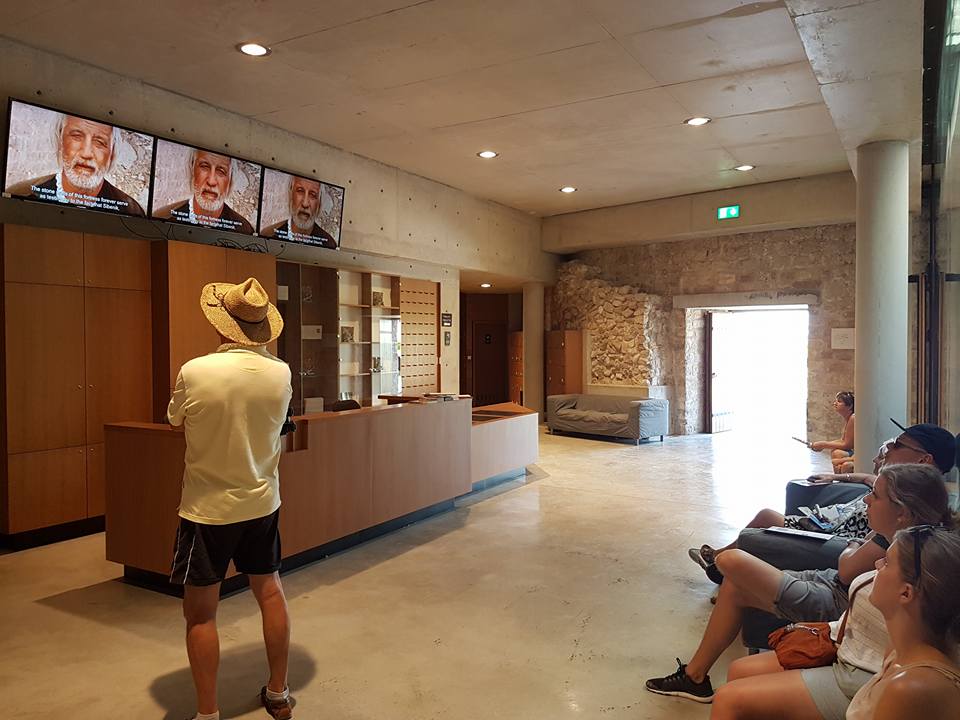
More comfy sofas and one of the best tourist promo videos I have seen, presenting the heritage of Sibenik and its fortresses through actors playing historical figures. If I can find the video (no luck so far) on YouTube, I will add it to this article.
One of the nice features of a visit to St Michael’s Fortress is that you get a second fortress entrance for free (admission 30 kuna) – the smaller and more intimate Barone Fortress, which followed in St. Michael’s Fortress in becoming a modern tourist attraction and celebrated its first anniversary in January, as we reported previously. Yes, January, for while many destinations sleep during the winter, it appears that Sibenik is doing all it can to make its facilities open to visitors. The fortresses are open all year.
The acid test. Kids, do you want to walk another 650m to see another fortress? Without the blink of an eye, they were leading the way. Their decision was perhaps aided by the very friendly museum lady, who was politely insistent that we would really be missing out if we didn’t visit the second fortress. The helpfulness and friendliness of the people we met in Sibenik was something we all commented on the drive home.
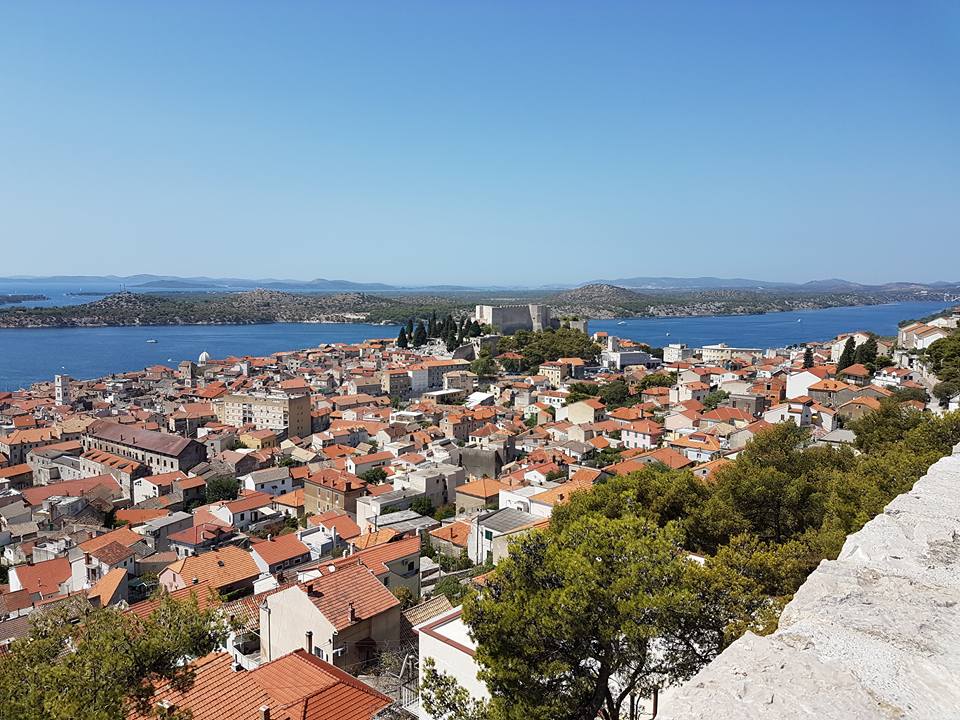
The Barone view, with St. Michael’s in the middle.
A quick video of the view – not too shabby.
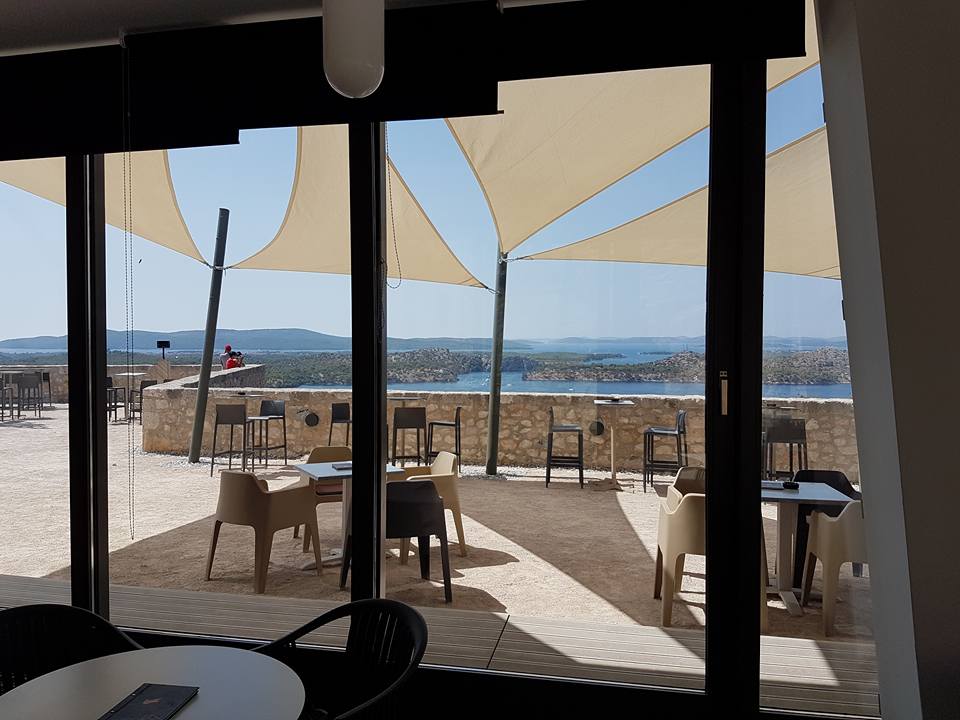
Although we were spared the heat of mid-August, it was still too hot for this pink Englishman, and we decided to take advantage of the modern air-conditioned interior. Not a bad view.
And then it got interesting.
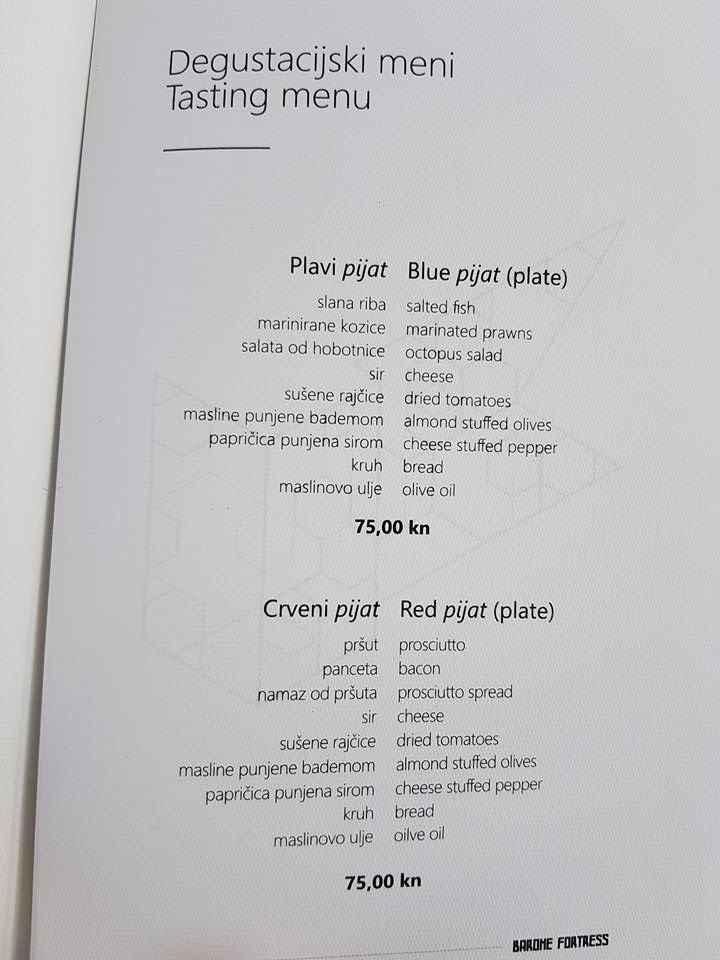
With a four-hour drive home ahead, and two young stomachs rumbling, the issue of sustenance reared its ugly head. And Barone provided a rather delightful solution.
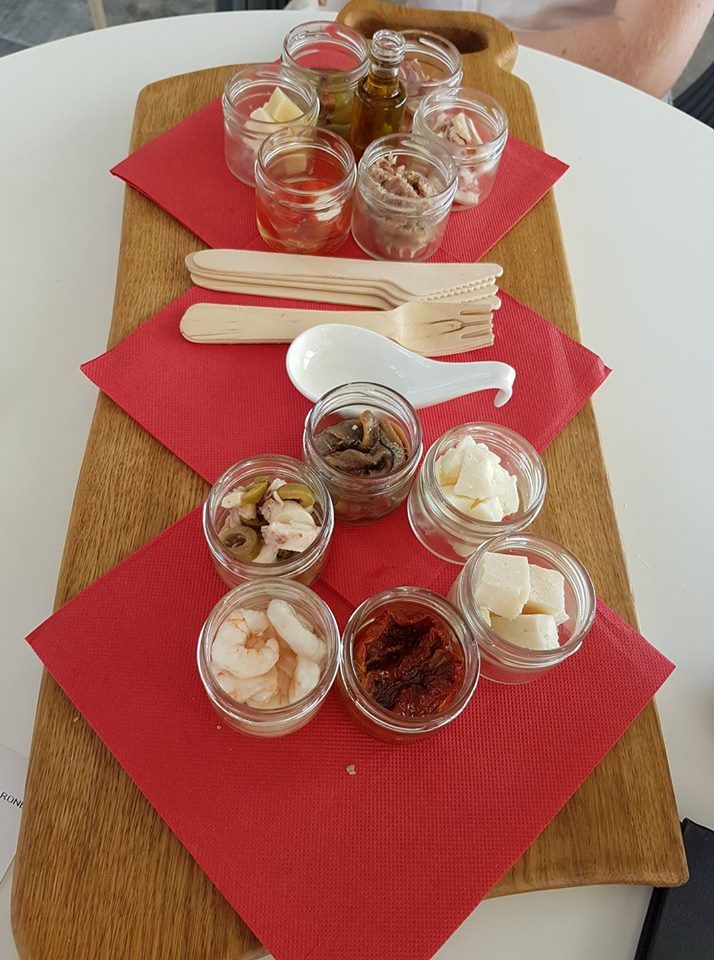
Wonderful taster snack menus, featuring (and celebrating) local produce – everything was sourced from Sibenik-Knin county. Special mention of the olive oil, which was sensational and led into the well-stocked souvenir shop for winter supplies.
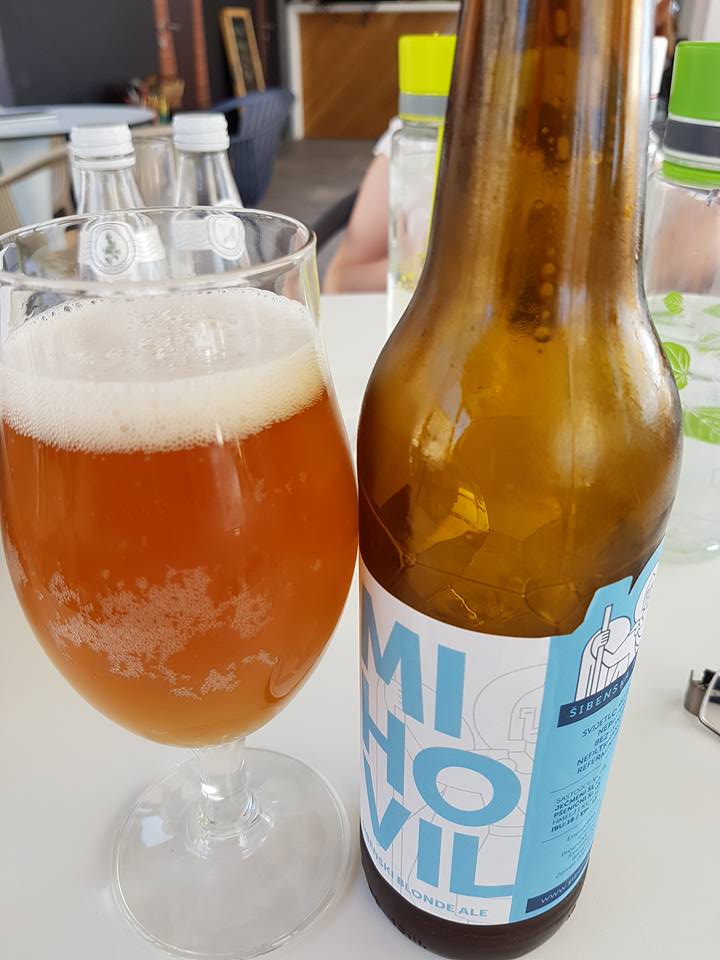
Even the beer was local, and rather a nice pint it was.
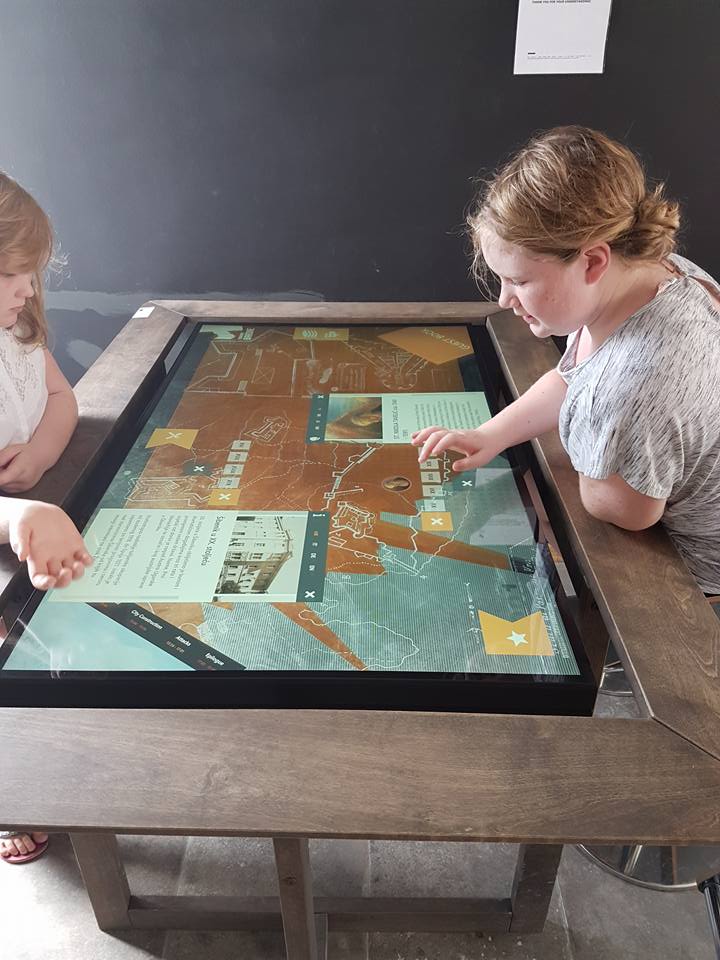
Barone Fortress has plenty to do for the kids, including a little augmented reality, but this interactive table took visitors through the centuries, and it was a real educational treasure trove which occupied and inspired young minds.
And now for the interesting bit of Sibenik fortress trivia.
As amazing as these two places are, there is a third fortress which became Sibenik’s second UNESCO World Heritage Site. And what a beauty she is, St. Nicholas, which you can explore in the video above. Quite magnificent.
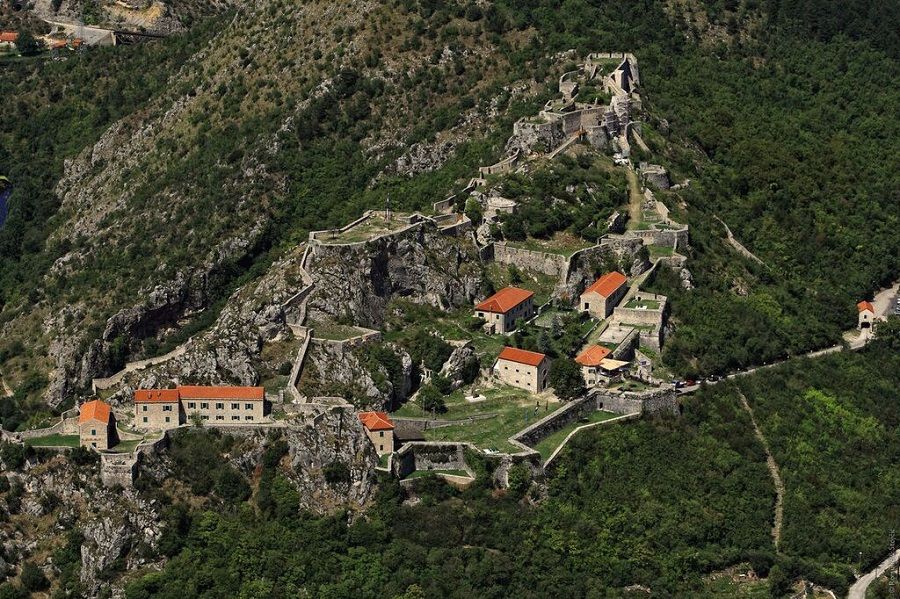
But even with these three incredible fortresses, there is one which is more famous, indeed the second largest in all Europe, and which has been a pivotal player in Croatia’s history, guarding the north of Sibenik – Knin County.
And once you recover from the stone magic of Sibenik and its heritage and look a little at the wider Sibenik region, that is when you begin to realise just how special this destination is.
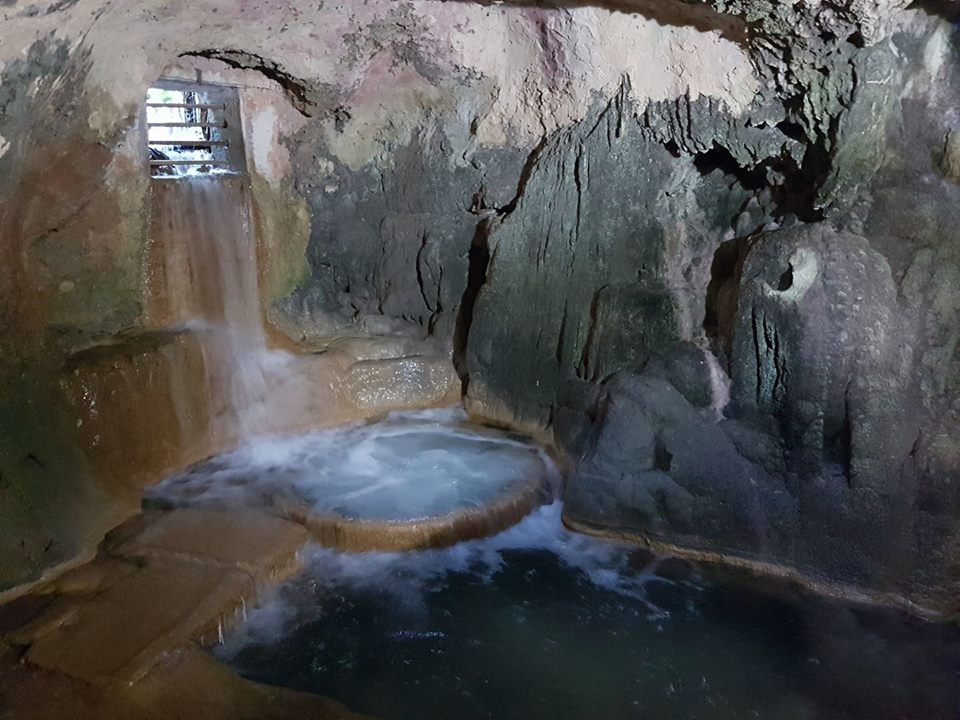
Nature? The fabulous Krka National Park is just a few kilometres away. Most famous for its waterfalls, there is so much to explore, which we will be doing on TCN in the coming weeks, but my favourite spot? The caveman jacuzzi, which had the girls enthralled.
NOCTURNO KRKA – National park Krka, Croatia, timelapse film from Romulic & Stojcic on Vimeo.
One can never tire of the beauty of Krka, but add a little genius from Romulic and Stojcic, and it gets even better. Meet Nocturno, shot over three years. Fabulous!
For wine, this is the home of Bibich, for sailing, the Kornati Islands, for luxury hotels, D-Marin and for upscale chill resorts, it is hard to beat Obonjan, which is located just 40 minutes by ferry. Like your food? Pelegrini, situated next to St James Cathedral, is regarded as the best restaurant in all Dalmatia.
Located just off the Zagreb to Split motorway, and 40 minutes’ drive from both Split and Zadar, Sibenik is truly the destination which has it all, and is a great cultural, family and activity holiday. Check out the official promo video below and meet the town which had the first electric street lamps, courtesy of one Nikola Tesla. Learn more about the Sibenik Knin region here.


